If you’re already a regular cruiser or just thinking about booking your first cruise, you might be wondering about how crime and security are dealt with on board.
Do cruise ships have police? Let’s take a look.
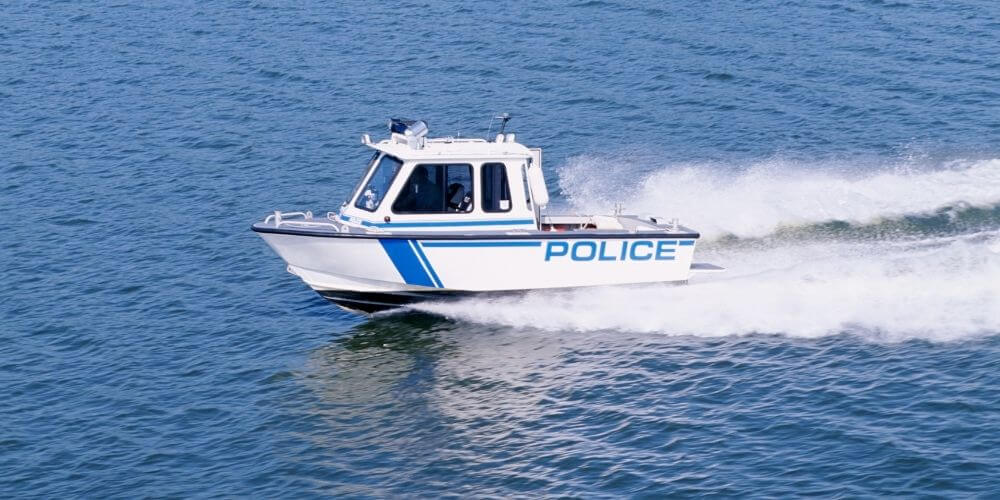
Cruise ships do not have police. Instead, an onboard Security Director will oversee the ship’s own dedicated security department, staffed by former federal, state and military law enforcement personnel from various countries.
By law, ships sailing to or from the USA must have at least one crew member trained in crime prevention, detection and reporting.
Security instead of police – why?
Police forces are governed and empowered by nation-states in order to protect their citizens and to prevent crime and civil disorder. National police forces may also sometimes work together to tackle international crime via the global policing coordination organization Interpol.
Cruise ships, however, are not based inside national borders and do not fit neatly under the effective jurisdiction of any one country. This means that there isn’t an obvious police force with ongoing responsibility for law and order on each cruise vessel.
Even where there is a linked police force (e.g. the police force of the ship’s “flagged” or nominal country) they are unlikely to have the resources to investigate all cruise ship crime thoroughly, and could not practically deploy police officers on every cruise.
Suggested read: Are There Guns on Cruise Ships?
Crimes at sea
If a cruise ship is in port at the time a crime occurs, the local authorities for that country have clear jurisdiction to investigate and prosecute those responsible.
But, if a ship is at sea, you may wonder which country has jurisdiction (the power or right to interpret and apply the law) on board the ship.
Under the United Nations Convention on the Law of the Sea (UNCLOS), countries have jurisdiction over activities in waters within 12 nautical miles of their national coastline.
Beyond 12 miles, the ship’s officially registered (“flagged”) country normally has jurisdiction.
So, if a ship is registered in the Bahamas, then Bahamas law may apply, even if the ship is cruising on the other side of the world in the Pacific Ocean when a crime occurs.
It would obviously be impractical for Bahamas police to attend, so the highly-trained cruise ship security team will be first on the scene to deal with any crimes committed at sea.
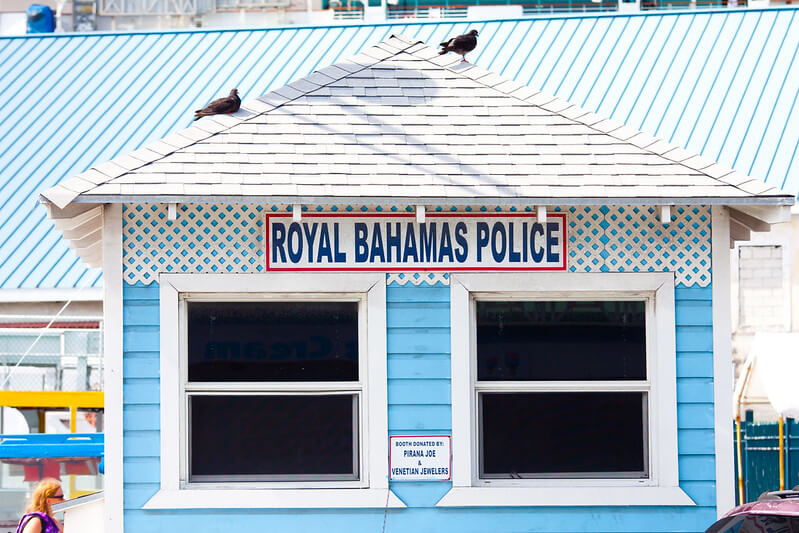
Investigating crimes
Instead of police, cruise ships normally have their own security teams who act as first responders when crimes are reported on board. These internal security staff are employed by cruise ship companies and work under the authority of the ship’s captain.
When crime occurs in international waters, the captain must decide whether to continue cruising to the next scheduled port of call, or to make an unscheduled stop at a nearer port.
Local authorities at the port can then be brought on board for formal investigations. The ship’s security team are responsible for passenger safety, preservation of evidence and investigation until they hand the case over to law enforcement officers.
When US citizens are involved in serious cruise ship crimes, the FBI must investigate, although other law enforcement agencies might have the primary role. Where serious crime is indicated, the FBI can draw on its global network to protect passengers and to secure and preserve the crime scene.
This recourse for US citizens is limited. Under international law, the US cannot prosecute crimes on foreign-flagged ships once they move outside US jurisdiction. It would be illegal for the FBI to enter a foreign-flagged vessel outside US territory or to enforce US criminal laws, without flag state permission.
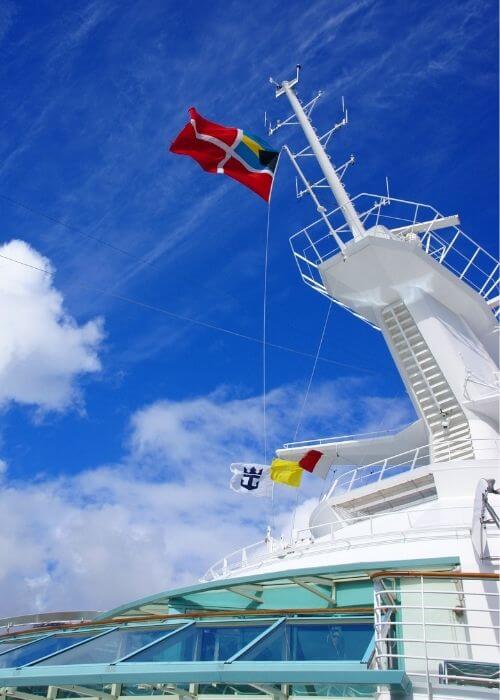
Cruise ship security teams – what to expect
Ex-police or military personnel with relevant experience or qualifications may be sought for more senior cruise ship security positions. Even lower-level positions may have particular criteria (e.g. physical fitness requirements, diving certification, etc).
Uniformed security staff are normally visible at checkpoints or patrolling around the ship. There may also be less obvious plainclothes security staff working on the vessel.
Larger cruise ships undertaking long international journeys, especially through waters where piracy or terrorism are potential risks, may have bigger teams of specially trained security officers who have previously served with police or military units.
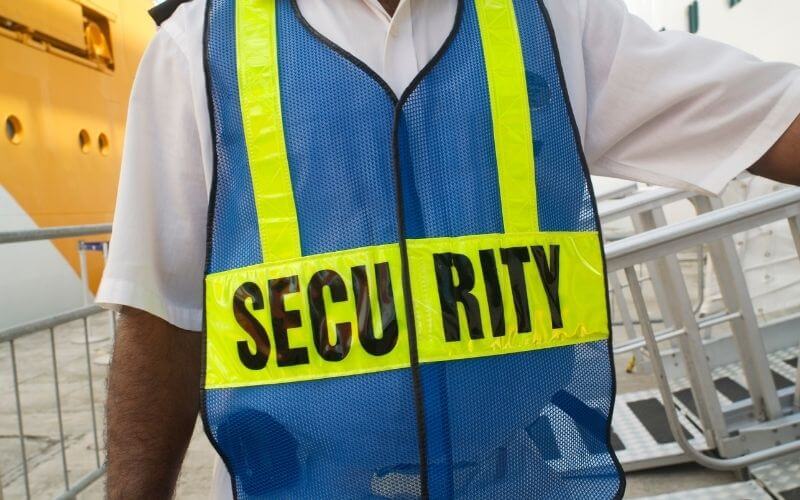
Committing a crime at sea
The consequences of a crime on a cruise ship vary depending on the seriousness of what you’ve done. You may be disembarked at the next port of call, and handed over to the local police. For serious crimes, you’ll be locked in your cabin or in a ship’s brig until you reach port.
If it’s a minor crime, you might still be allowed to wander the ship but you’ll be reported to the police either at the next port or when your cruise ends.
Complications of cruise ship crimes
There’s a range of potential complicating factors for crime investigation on cruise ships.
International legal and diplomatic issues
Jurisdiction is a complex issue for cruise ship crime, with multiple potentially interested authorities to consider and coordinate.
These might include a ship’s ‘flagged’ country, foreign port authorities, the home countries of victim and perpetrator, and the FBI where US citizens are involved. Investigation and prosecution can entail sensitive and prolonged international negotiations.
Maritime law versus law on land
The law at sea is not the same law you will find in any individual country. Maritime law is a unique, intricate and sometimes murky field, attempting to regulate the ungoverned spaces of the ocean. Some areas of maritime law are decades or centuries old, and may not be obviously relevant to modern cruise ship crime.
Flagging
A ship’s “flag of convenience (FOC)” is the country where it’s officially registered, regardless of ownership or operating routes. When a ship’s owner chooses to flag their ship in a particular country, activities on that ship become subject to the laws of that nation, and many crimes will be handled under its jurisdiction.
Popular FoC countries tend to be those with the least stringent laws and regulations around labour, safety and environmental protection. Cruise ships are most likely to be registered to the Bahamas, Panama and Liberia.
Cruise lines may state that they have “headquarters in Miami” without mentioning FoCs for their vessels. Passengers should understand that regardless of the location of the cruise company HQ, its ships may be registered elsewhere.
Potential conflicts of interest
The ship’s captain and security team are employed by the cruise company. While the primary purpose of a national police force is to tackle crime and protect citizens, the primary purpose of a cruise company is to run cruises and make money. Security officers may therefore feel under direct or indirect pressure to get a cruise moving again quickly, as much as ensuring that a crime is fully investigated.
Delays
It might take several days before a cruise ship is able to call at a port and allow law enforcement officers to investigate a crime report. During this time, evidence could deteriorate or be tampered with, making subsequent investigation difficult or impossible.
Cruise ship jails
Larger cruise ships do have a type of jail, known as ‘the brig’. These safe, lockable spaces are rarely used except in cases of serious crime where prosecution is likely (e.g. trafficking drugs).
For less serious crimes, or where passengers are drunk and disorderly, they may instead be locked in their cabins.
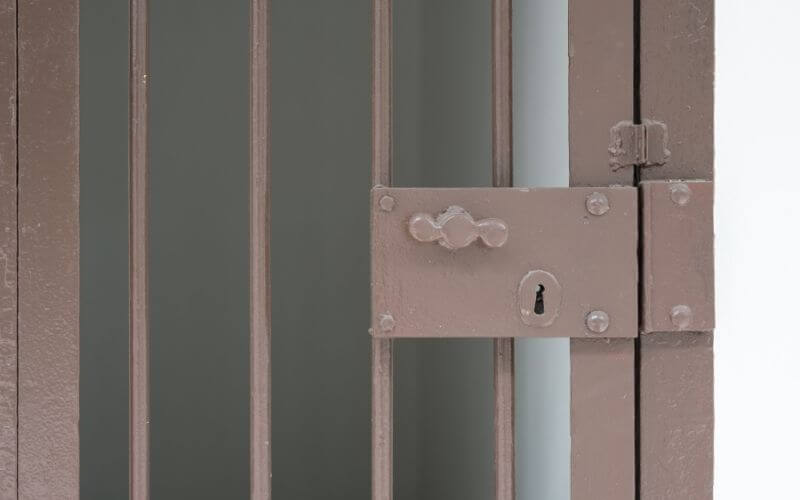
The most commonly reported crimes on cruise ships are reported to be sexual assaults followed by physical assaults with serious injury, and major theft.
Final word
So, do cruise ships have security? Yes, and they’re very good at their job. The security on cruise ships will help keep guests safe, and make sure that anyone breaking the rules (or the law) is dealt with quickly and efficiently.
If you have questions about security arrangements on particular cruise lines or ships, I would suggest that you consult the cruise line’s website or contact them directly to request further information about their security personnel and systems.
Related posts:
- Bringing Weed on a Cruise: Everything You Need to Know
- Do Cruise Ships Check for Drugs?
- How Much Do Cruise Ship Workers Make?
- Is It OK To Have Sex On A Cruise Ship Balcony?
- Can A Felon Go On A Cruise?
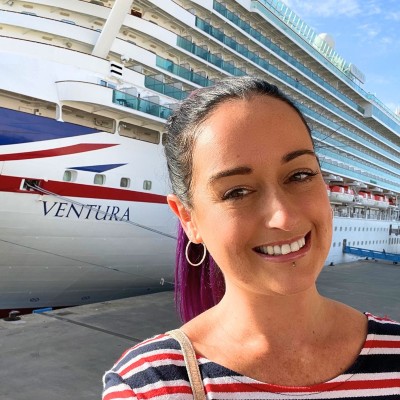
Jenni Fielding is the founder of Cruise Mummy. She has worked in the cruise industry since 2015 and has taken over 30 cruises. Now, she helps over 1 million people per month to plan their perfect cruise holidays.

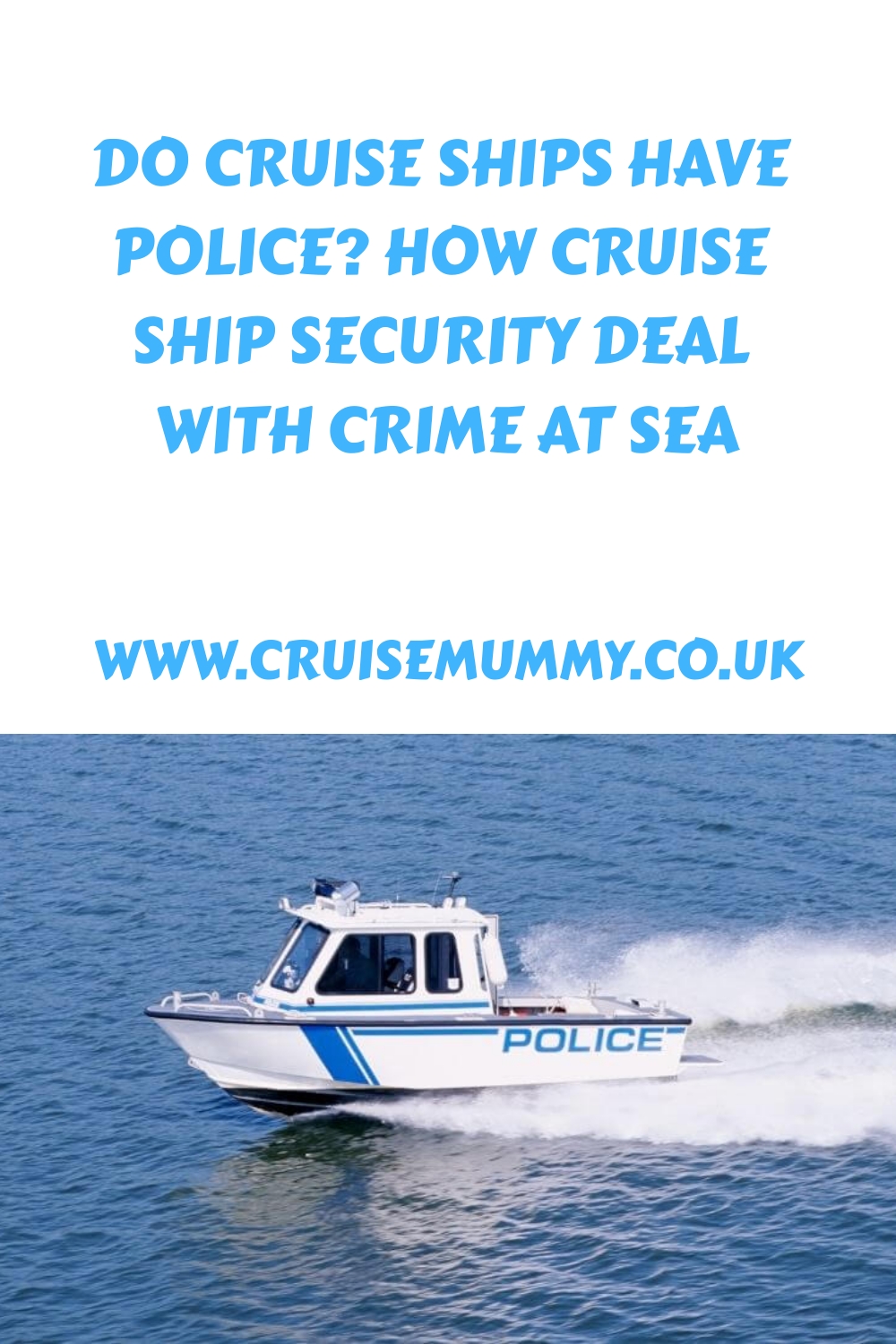

With respect, the above article about Law enforcement on Cruise Ships is a complete pack of lies. 60 Minutes Australia online reports : bereaved families and independent experts say no proper investigations are carried out. The FBI refuse to get involved. The attitude of the Cruise Ships industry and staff is abysmal. Their conclusion is that Cruise Ships are completely lawless, with no legal protections at all. Apparently only the place of registration provides any semblance of enquiry, and then totally inadequate, if at all.
I believe at least two national law enforcements should have jurisdiction : that from the home operation base of the Cruise Company or Ship, and from the nationality of the passengers involved.